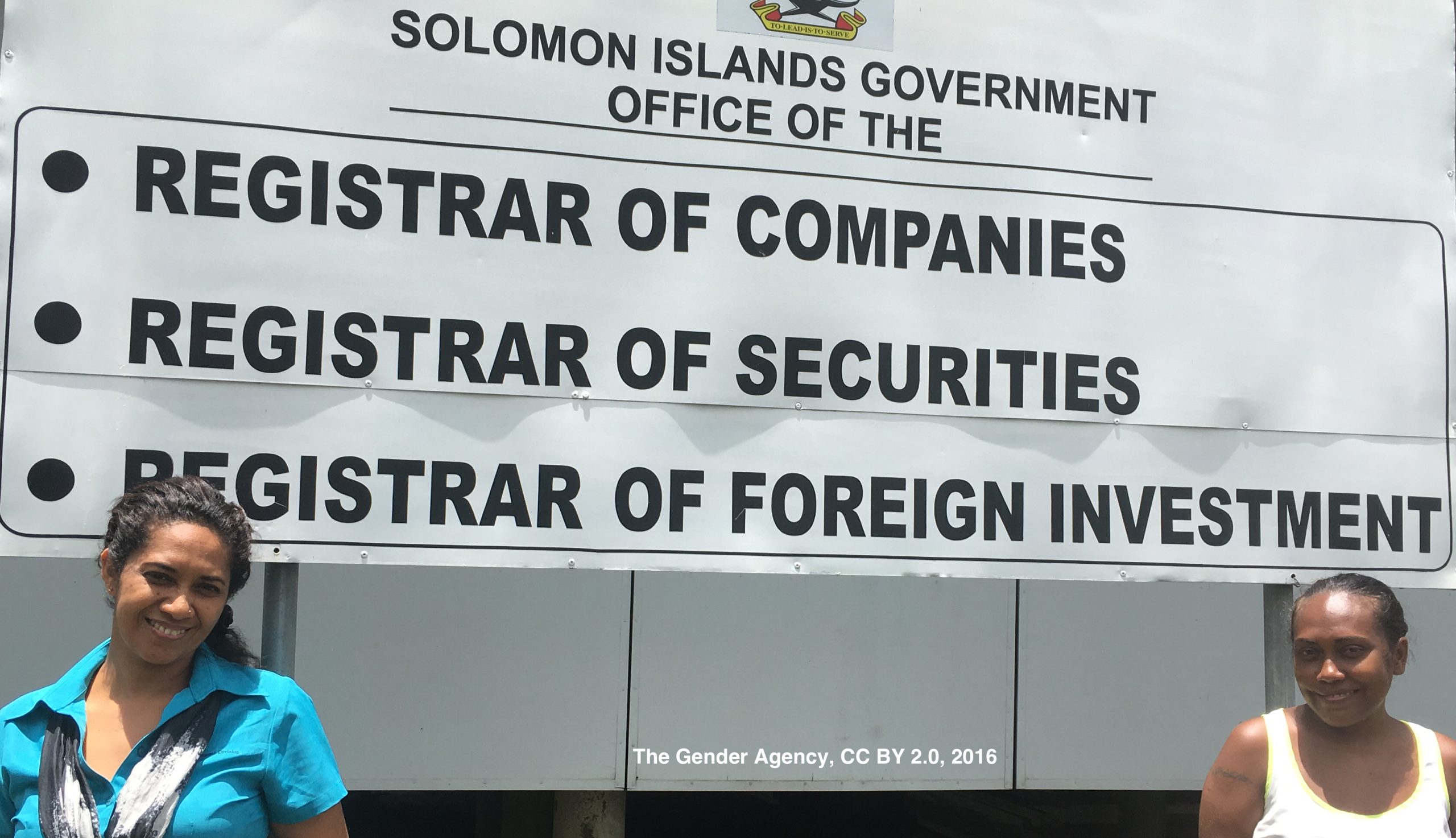
Over the last few months, a great deal of ink has been spilt over the strengthening of relations between the Solomon Islands and the People’s Republic of China. Unfortunately, very few of the commentators and reporters have ever been on the ground in those countries to collect the facts needed to fully understand this development. Admittedly, this is in part because neither of their governments appear interested in providing a conducive environment to do so. Similarly, very few possess the regional subject matter expertise to be able to provide the historical, political, and social context required to make sense of those facts that have been gathered. Perhaps that is why some authors add the following disclaimer to their correspondence, “I am not a regional expert.” Then there is the issue of diversity of opinion. Much more is needed in order to test conclusions against alternatives. It is the responsibility of their editors to demand it.
Earlier today, I took it upon myself to collect some facts on the relations between the Solomon Islands and the United States. Specifically, I wanted to gather some more facts about the failure of the Government of the Solomon Islands to provide diplomatic clearance to a United States Coast Guard (USCG) vessel. This incident was widely covered and debated by reporters and pundits in recent days. Unfortunately, their discourse was riddled with sparse details, driven by unstated assumptions, and framed in superficial ways. Rather than stepping into that arena, I reached out to my contacts. I wanted to try to collect some additional facts on the ground. And, this is what I learned from a State Department spokesperson:
On August 23, the Government of the Solomon Islands Government did not provide diplomatic clearance to a USCG vessel that had been seeking to refuel and provision. After the Solomon Islands Government failed to provide the necessary clearance, the USCG Cutter Oliver Henry diverted to Papua New Guinea. It arrived in Port Moresby on the same day. The vessel was in the region to support the Pacific Islands Forum Fisheries Agency (FFA). Specifically, it was participating in Operation Island Chief. This operation seeks to enable regional partners to protect their national interests, combat illegal, unreported, and unregulated (IUU) fishing, strengthen maritime governance, and model professional maritime behavior to partners and competitors. Operation Island Chief is one of four annual operations that are conducted by the FFA. It occurs in the waters surrounding the FFA member states. These member states include Australia, Cook Islands, Fiji, Federated States of Micronesia, Kiribati, Nauru, New Zealand, Niue, Palau, Papua New Guinea, Marshall Islands, Samoa, Solomon Islands, Tokelau, Tonga, Tuvalu, and Vanuatu. The United States Government was disappointed that the USCG Cutter Oliver Henry was not able to make this planned stop in Honiara.
On August 29, the U.S. Navy Ship (USNS) Mercy arrived in Honiara to begin a two-week humanitarian mission that is part of the Pacific Partnership. The Pacific Partnership claims to be the largest annual multinational humanitarian assistance and disaster relief preparedness mission conducted in the Indo-Pacific Region. This year, the Pacific Partnership team is composed of representatives from Australia, Japan, and the United States. These partners coordinate their local events with the host nation. Their events therefore are planned around the requirements and requests set forth by the Solomon Islands. In Honiara, their engagements are intended to include community health outreach and professional medical exchanges, engineering projects, discussions on humanitarian assistance and disaster relief, and community outreach events (e.g. band concerts). The United States Government was pleased that the USNS Mercy was given permission to enter the Solomon Islands. And, the United States remains committed tolong-term engagement in the Pacific. This includes listening to the people of Solomon Islands and responding to their needs.
On August 29, the United States received formal notification from the Government of the Solomon Islands regarding a moratorium on all naval visits, pending updates in protocol procedures. The USNS Mercy had received diplomatic clearance prior to the moratorium being implemented. The United States government will closely monitor the situation.
As already noted, this puzzling set of facts demands further scrutiny by academics, journalists, and think tank fellows. While they may help to fill in some gaps, these facts raise new questions that need to be answered. For example, why does the Government of the Solomon Islands want updates to be made to the protocol procedures? In the coming days, it is my hope that reporters and commentators not only will go out and collect the facts to answer these questions. They will then provide the historical, political, and social context that is required to make sense of them. And, they will showcase a wider range of opinions in their works so that their readers and viewers can test their conclusions against alternatives.
Either way, I hope that the Biden Administration and United States Congress will take a moment to reflect on the recent news coverage of the Solomon Islands. Just as I hope that the national policymakers in the Solomon Islands will do the same. Both have a duty to ensure that their media and citizenry are able to hold accountable those who are responsible for their international relations and their policies. Otherwise, they risk compromising a vital component of democracy in the Pacific.
Michael Walsh (@pacombeat) is an affiliate of the Center for Australian, New Zealand, and Pacific Studies of the Edmund A. Walsh School of Foreign Service at Georgetown University. He served as the Chair of the Asian and Pacific Security Affairs Subcommittee of the Biden Defense Working Group during the 2020 United States presidential election. The views expressed are his own.